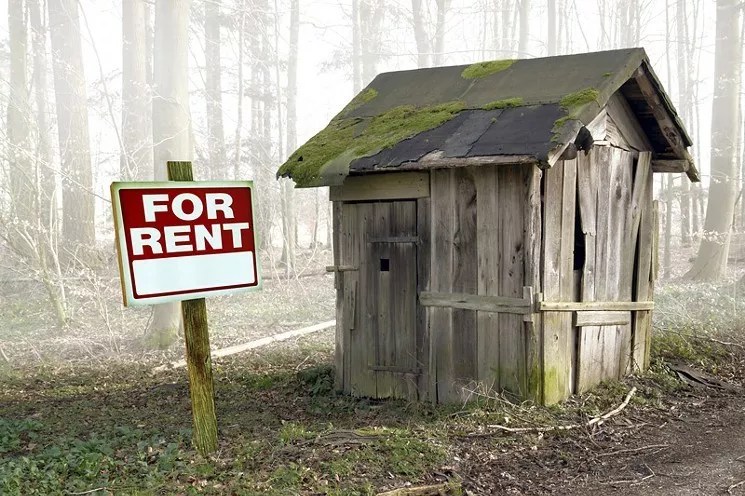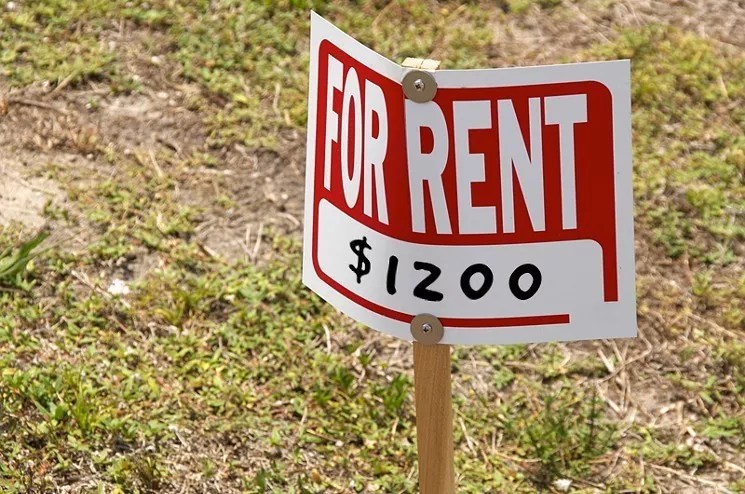
Thinkstock file photo

Audio By Carbonatix
Today, October 19, marks the deadline for cities to submit proposals to Amazon focusing on why they should be home to the company’s second headquarters, shorthanded as HQ2, and the presentation from Denver, which is considered one of the favorites, is in. Plenty of locals have been worried about the impact on traffic, infrastructure and more should the Mile High City win the race, which is predicted to result in more than 100,000 new jobs between Amazon employees and ancillary workers, and a new study that predicts significantly higher rent and housing costs here in the wake of HQ2 adds more reasons for concern.
“Prime Markup: How Much Would Amazon HQ2 Drive Up Rents?,” issued by ApartmentList.com, analyzes the potential Amazon effect on Denver and fourteen other metropolitan areas thought to have a good chance of successfully luring this economic powerhouse: Raleigh, North Carolina; San Jose and Los Angeles, California; Pittsburgh and Philadelphia, Pennsylvania; Baltimore, Maryland; Austin and Dallas, Texas; Detroit, Michigan; Minneapolis, Minnesota; Boston, Massachusetts; Atlanta, Georgia; Chicago, Illinois; and Washington, D.C.
While all of these communities would suffer growing pains trying to accommodate HQ2, study author Sydney Bennet believes they would be particularly acute in Denver, which is already experiencing housing prices so high that most renters quizzed in an ApartmentList.com survey from August said they’d like to move to another city.
In the following Q&A, conducted via email, Bennet digs deep into the Denver findings, going beyond rent prices to examine a slew of other pros and cons related to a potential HQ2 victory. She notes that a significant number of folks would benefit from an Amazon influx – but there could be plenty of losers, too.
Westword: How does Denver compare to other cities cited as being under consideration for Amazon’s second headquarters when it comes to rent changes?
Sydney Bennet: Denver would see higher rent prices than two-thirds of the top contender cities we analyzed, with predicted additional annual rent growth of 0.8 percent to 1.1 percent per year. Denver is not as severely impacted as some metros – for example San Jose. San Jose is experiencing an extreme shortage of housing and would see additional rent growth of 1.0 to 1.6 percent per year. But Denver is predicted to experience higher rent increases than many other metros, including Austin, Boston and Los Angeles. Rents are already increasing rapidly in Denver, and the additional rent increase from Amazon HQ2 will put even more pressure on renters.

File photo
What data did you analyze in order to theorize the impact of HQ2 in various cities?
We analyzed a series of factors to predict the impact of the Amazon HQ2 rents. These factors include historic job creation, historic building permits per year, the ease of building in the metro, vacancy rates, workforce size and growth and median income.
You estimate that HQ2 will result in 50,000 employees and more than 66,000 supplementary workers coming to the city of choice – and that number of folks could populate a rather large city by themselves. Does that mean the impact would be amplified in a mid-sized metropolitan area like Denver as compared to larger ones such as Baltimore, Boston and Philadelphia?
This is definitely the case. Small and mid-sized metros will be significantly more impacted than large metros. The new Amazon and supplementary workers represent large workforce growth for smaller metros such as Raleigh, Pittsburgh and Denver. In large metros, such as Los Angeles and Chicago, the number of additional workers is small compared to the metro’s size and housing stock.
How do you calculate the number of new residents attracted by HQ2 who will rent as opposed to buying a property?
We expect similar trends in both rentals and home prices. It’s likely more of the Amazon workers would purchase homes than the supplementary workers (ex: construction workers, janitors) who have lower incomes. Many Amazon workers will rent when first moving to a metro, but purchase a home further down the line.
Even if the majority of those HQ2 employees and supplementary workers buy a home as opposed to renting, will they still create upward pressure on rents – and if so, how?
We’re analyzing both home and apartment building permits, and there’s a shortage of both to house the Amazon workers. If Amazon workers purchase the homes on the market, other Denver renters looking to purchase homes will remain renting for longer and drive up prices.

Thinkstock file photo
Your report mentions that Denver already has something of a rent affordability crisis, with rents rising 52 percent between 2005 and 2015. How can that factor create more upward pressure on rent prices should HQ2 be built here?
It’s up to Denver leadership to decide if increasing the rent (and home) affordability crisis is a worthwhile trade to make for new job creation and population growth. To prevent a worsening affordability crisis, the metro would need to significantly increase its construction, but it seems nearly impossible that the metro would be able to fully keep up. From 2001-2015, Denver added 2.9 new jobs per building permits, and that was without the rapid influx of Amazon employees.
You also discuss low vacancy rates in Denver and too little permitting for new apartment complexes. What kind of an impact could these elements have on rent prices should Amazon build HQ2 in the Denver area?
The low vacancy rate and lack of permitting leads to less available housing stock for Amazon workers, which in turn creates rent increases. Part of the basis for our rent growth calculation is the ratio of jobs per permit. Increasing Amazon jobs with little increase in housing stock increases rents. The Denver vacancy rate of 5.0 percent is the third lowest of the metros studied, indicating very little slack in the housing market.
According to your report, the prospect of higher rent prices post-HQ2 wouldn’t be a onetime hit, but has the potential of pushing prices higher over time. What are the reasons for that?
Amazon projects the job growth will take place over the next ten to fifteen years, as employment at the HQ2 expands. We’d predict continued additional rent growth during this period of rapid job growth, a trend we’ve seen in Seattle, home to Amazon’s current headquarters.
Would you expect that rents would go up evenly in the wake of HQ2 whether an apartment is on the lower end or upper end of the scale – or will there be more upward pressure in specific areas?
I think we’ll see pressure on both ends of the market. Many of the Amazon workers will move into luxury apartments, and construction of expensive apartments will continue. Many of the supplementary workers, and current renters displaced by rising rents, will be looking for more affordable rental options. Right now, Denver is already experiencing a shortage of affordable rentals, while there are more vacancies in new luxury buildings.
What kind of renters would you expect to be hurt most by higher rent prices caused by HQ2?
Lower-income renters will be the most negatively impacted by the rent increases, as they are ill-equipped to handle the additional expenses, especially if their wages remain relatively constant. In our previous analysis, we revealed that wages for service and blue-collar workers have failed to keep up with rent hikes, a trend that will intensify with the Amazon HQ2.
Would these negatives extend to renters in that category whether they work for Amazon or not?
Yes, the rent hikes will impact both Amazon employees and non-Amazon employees alike.

File photo
Even if rents rise as a result of HQ2, would other positive attributes related to housing counterbalance the negatives?
There will be benefits to some Denver residents – for example, owners of construction companies, landlords, homeowners and those who are hired by Amazon. Additionally, the competition of workers for the Amazon and supplementary jobs would likely increase overall wages a bit. For low-income renters who do not end up in higher-paying jobs, the costs may not be worth the benefits.
What are some of the other benefits that could come to a city as a result of HQ2 when it comes to housing and rent?
Homeowners would likely see their property values increase, which is a benefit, although not one that renters will experience. Other benefits to the region could come in the form of investments the city makes using the additional tax revenue – for example, improvements to roads or schools. If Denver offers significant tax breaks to Amazon, something many cities are considering, some of this benefit would evaporate.
Is there anything else on this topic that I may have neglected to ask about that you think is important to add?
The only other thing I’d like to emphasize is that this additional rent growth of 0.8 percent to 1.1 percent comes on top of Denver rent growth that has been quite steep. From 2005 to 2015, rents in Denver increased 52 percent. Rents will likely continue to rise with or without the Amazon HQ2, and Amazon will put additional upward pressure at a time when there is already an affordability crisis.